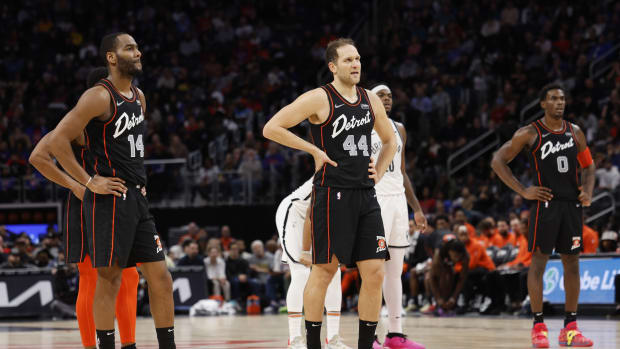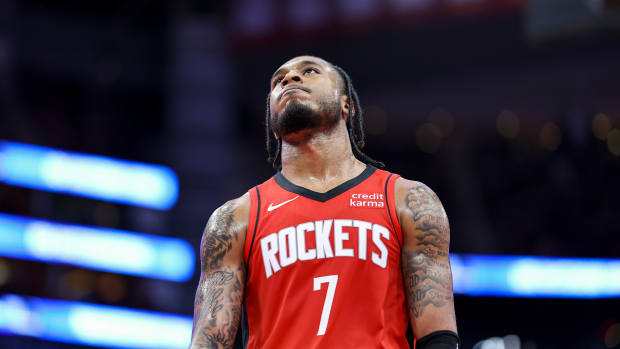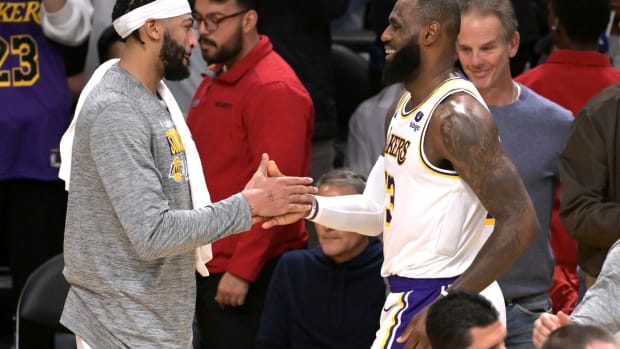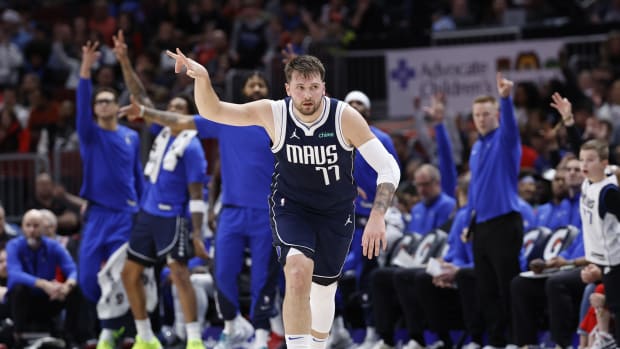Kelly Krauskopf Primed to Impact Pacers as NBA's First Female Assistant GM
Kelly Krauskopf had been through a whirlwind of a Monday and it wasn’t even 2 p.m. yet. Earlier in the day, the Indiana Pacers announced that she’d been hired as their new assistant general manager. She spent the morning starting to get up to speed on the new job, fielding inquiries from the press, and, most importantly, meeting the team.
“I don’t think [the team] was aware of the announcement, so that was a fun moment,” Krauskopf said on the phone once she got a moment to breathe. “That’s the lifeblood of the whole organization, you know? This job means working with a great organization, and the team is what we’re trying to continue to build. And hopefully I can help [president of basketball operations] Kevin Pritchard do that.”
BECOATS: Becky Hammon and the Importance of Inclusion in the NBA
Krauskopf knows every inch of basketball, from the court to the c-suite. She grew up in South Texas and played at Texas A&M, taking a job with the university’s athletics department once she graduated. After putting in some time in corporate America, she was tapped to be the first director of basketball for the WNBA in 1996. For the past 17 years, she’s has been the president and general manager of the Fever, Indiana’s WNBA team. Krauskopf took the team to the WNBA Finals three times, won once, and is “as competitive as anyone in the Pacers’ organization.” She still thinks the Fever should’ve won all three championships.
Hiring women for front office positions in men’s leagues is a big deal, not because there’s any reason we shouldn’t be there, but because historically we haven’t been. It’s important to recognize women’s achievements, though I sometimes worry that focusing on gender can take away from the fact that an individual is the most qualified person—not woman, but person—to do the job. When asked for her thoughts about how we in the media cover these types of moves, Krauskopf shared a similar sentiment.
“Nobody wants to do this just because you’re a girl,” Krauskopf said. “I want to earn it, but that’s the way I was brought up. You earn it, and if you get your chance, you take it. I think that’s a big piece for me. This is not just checking a box. This is really important in terms of what I want to be able to do to help the team, the franchise. And that’s all. That’s it for me.”
At the same time, breaking through any glass ceiling is an impressive feat, and these steps forward deserve to be held up and celebrated. Krauskopf realizes that, too, and understands the importance of being the first woman in such a high profile NBA position. She knows what she’ll mean to young girls. How simply by existing in this job, she can expand their dreams. When Krauskopf was young, she didn’t have the WNBA to look to, let alone examples of women in prominent managerial positions within the sports world. Her role model was the Rocket’s Calvin Murphy. So she knows that she’s now showing a generation of young girls what’s possible, and she doesn’t take it lightly.
While Krauskopf is thrilled with her new job, she didn’t aspire to work in the NBA more than the WNBA. She loved what she did with the Fever: the highs of putting together a winning team and even the lows that came with losses. She says the lifecycle of the WNBA is the reason for the glimpses of forward progress we’re starting to see in the NBA with hires like hers, or with women like Becky Hammon on the Spurs coaching staff.
“I mean, it’s hard for me to say how far off the first female GM is,” she said. “How far off is a female president? We were close, right? I just think in due time. Think about this: The NBA is 72 years old. The WNBA is 22 years old. You need generations to be involved in the sport and management and coaching and training at all the levels that really hasn’t occurred yet. I’m a first generation pro women’s basketball executive. So now I’m taking all of my knowledge and experience, and it cuts across both genders. It doesn’t matter. I’m as competent as anybody in this building.”
It seems like everyone inside the building knows that, too, as Krauskopf’s hiring makes perfect sense for the Pacers. She worked closely with Pritchard, front office adviser Donnie Walsh and former president Larry Bird while she ran her own team. They’d bounce ideas off each other, work on strategies, talk about player movement. As they swapped stories, everyone realized that they were all doing the exact same thing. The only difference was the scale of the NBA and its players’ salaries, and Krauskopf is excited to immerse herself in this new league. She knows every player in the WNBA, but she says she’s not quite as well-versed in the NBA. So her plan is to take the first few months of the job to learn the rosters of every team and figure out the ins and outs of the salary cap.
FISCHER: How NBA Agent Debbie Spander Became a Titan in Sports
There are similarities between the Fever and the Pacers—both, Krauskopf believes, probably haven’t been given the attention or respect they probably deserve. But that underdog mentality is also her favorite thing about both teams. She cares about the culture of an organization, and told me that developing a cohesive, supportive group is just as important as raw talent and a depth chart. When she was in charge of the Fever, they beat Minnesota—a team with four Olympians on it—with a group of women not many people were familiar with.
“But we always knew what we had,” she said. “And I feel that way about the Pacers. This group of guys has this sense about them. They’re very self-aware of where they are and how good they are, and they don’t care if other people don’t know. And I love that. I have an older brother, I’m a little sister. So I’m like, bring it on.”



































